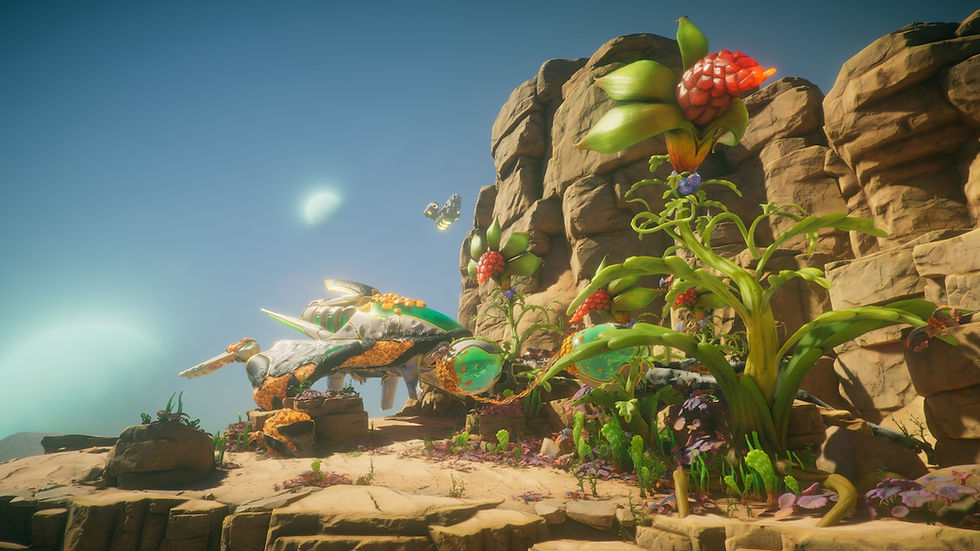• Recommended software for Australian Schools: Unity LTS Release 2022.3.55f1> Installation Advice and Download Links

The Experiments
Inspire and Motivate the Next Generation of Coders
The Experiments are a series of challenging coding and game development activities created by a Unity® Certified Instructor and a Unity® Certified Developer, using Unity® the world's most popular game engine.
The Unity® software ( www.unity3d.com ) is simply amazing and by far the most engaging way for students to learn to code!
Combined with the Experiments, you will have a tool which will motivate, inspire and fast-track your students learning process and bring their code to life.
Why do schools choose the Experiments over all the other 'Learn to code' options available?
Easy to Implement
Teachers do not need to know how to write code in C# or use the Unity® software in order for their students to use the Experiments. Once a student logs in, they proceed through the content, listen to audio, watch videos, complete activities, quizzes and tests on their own.

Full Grading & Reporting
Teachers can access student reports to monitor student progress and view the grades achieved for each experiment.

Commercial Quality Development Environment
Students will be incredibly engaged as the Unity® software will bring their code to life in a way in which no other coding environment can offer.

Perfect for all year groups from years 5 to 12
We have even recorded audio for all Overview and Activities in the program so that students can simply click Play and listen along and complete the activities in the Unity® software which makes it perfect for younger students or those with learning difficulties.

Every School Can Utilise the Experiments
You could use the Experiments for a class, an entire year group, a gifted and talented program or as an extra curricular before/after school activity.

Created for Australian Schools By Certified Developers
Created exclusively for Australian Schools by a Unity® Certified Instructor and a Unity® Certified Developer who run NESA registered PD workshops utilising the Unity® software. In fact, Game Training Pty Ltd has now worked with more than 1000 Australian schools over the past 11 years.


Account Bundles
Per Student Pricing
$30 per student
Class Group Pricing
This pack will provide you with 30 student accounts at $30 per student.
Additional accounts cost $30 per student
All students receive a username and password to access the experiments
A free teacher account is included to monitor student progress
The total cost for this pack is $900+GST
$15 per student
Year Group Pricing
This pack will provide you with 100 student accounts at $15 per student.
Additional accounts cost $15 per student
All students receive a username and password to access the experiments
A free teacher account is included to monitor student progress
The total cost for this pack is $1500+GST

Creating a New Project
This experiment will teach you how to create a new project within the Unity® software, about the Project folder structure, moving a project between computers, advice on backing up and importing files.

Identify Elements of the Unity® Software Interface
Learn about the various windows the Unity® software, how to rearrange the layout and return to the default window layout.

Creating and Editing Game Objects
This experiment will teach you about the Transform controls and how to move, rotate and scale GameObjects.

Positioning Game Objects
Learn about rotating, zooming and focusing on GameObjects, positioning, snapping and surface snapping as well as creating, colouring and applying materials to GameObjects.

Creating 3D Worlds
Learn how to create a spectacular 3D World with hills, trees, grass and ocean.

The First Person Controller
Use a character controller to allow the user to walk, run, jump and explore your 3D World.

Cars and Aircraft
Import cars and aircraft to explore your 3D World.

Move, rotate and scale with C# Code
Create your first script to move, rotate and scale GameObjects.

Keyboard Controls via the Input Manager
In this Experiment you will learn how to utilise the Input Manager. This will allow the end user to use the arrow keys to control game play.

Variables
Think of variables as information containers. There are different types of containers for different types of information.

Functions
Functions are a way of grouping your code into manageable reusable portions but they can also act as mini applications which can be set to run a task and even return information to you when the function has finished processing.

Physics, Gravity and Rigidbodies
Discover how to add physics to an object by adding a Rigidbody. Then write code to move objects by applying forces.

Collision Detection
Learn how to detect collisions and execute different code depending on the object you collided with.

Spawning GameObjects
Learn about the powerful Instantiate function and how to create Spawnpoints.

InvokeRepeating
This is an advanced technique allowing you to call a function over and over at a predetermined interval.

Coroutines
This experiment will teach you how to spawn objects using a coroutine.

Communicating with GameObjects
With multiple objects in your game, it's important to get them communicating with each other.

Artificial Intelligence
Discover the most common types of AI including Proximity-based, Raycasting, NavMesh and Machine Learning.